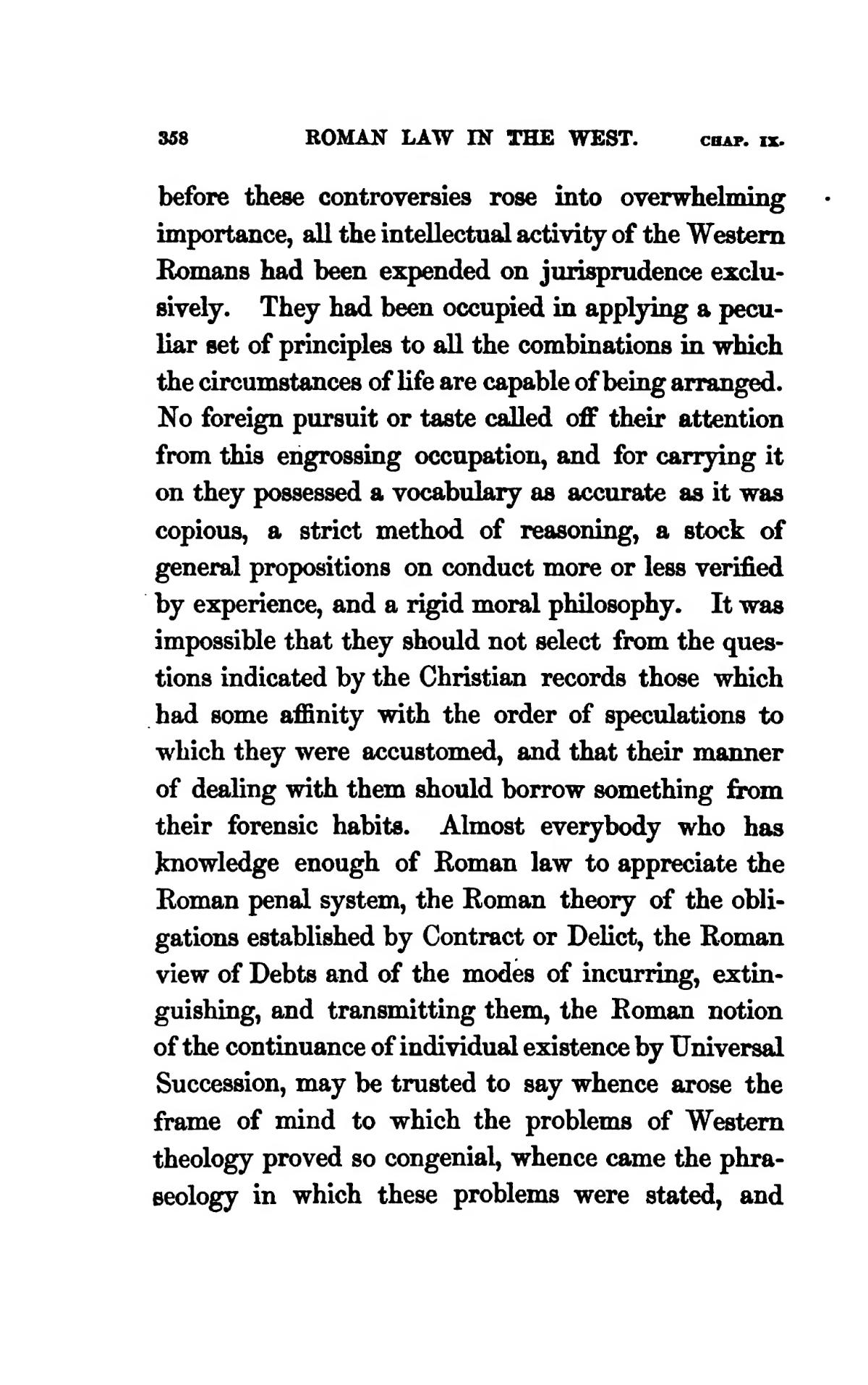before these controversies rose into overwhelming importance, all the intellectual activity of the Western Romans had been expended on jurisprudence exclusively. They had been occupied in applying a peculiar set of principles to all the combinations in which the circumstances of life are capable of being arranged. No foreign pursuit or taste called off their attention from this engrossing occupation, and for carrying it on they possessed a vocabulary as accurate as it was copious, a strict method of reasoning, a stock of general propositions on conduct more or less verified by experience, and a rigid moral philosophy. It was impossible that they should not select from the questions indicated by the Christian records those which had some affinity with the order of speculations to which they were accustomed, and that their manner of dealing with them should borrow something from their forensic habits. Almost everybody who has knowledge enough of Roman law to appreciate the Roman penal system, the Roman theory of the obligations established by Contract or Delict, the Roman view of Debts and of the modes of incurring, extinguishing, and transmitting them, the Roman notion of the continuance of individual existence by Universal Succession, may be trusted to say whence arose the frame of mind to which the problems of Western theology proved so congenial, whence came the phraseology in which these problems were stated, and
Page:Ancient Law.djvu/371
358
ROMAN LAW IN THE WEST.
CHAP. IX.
